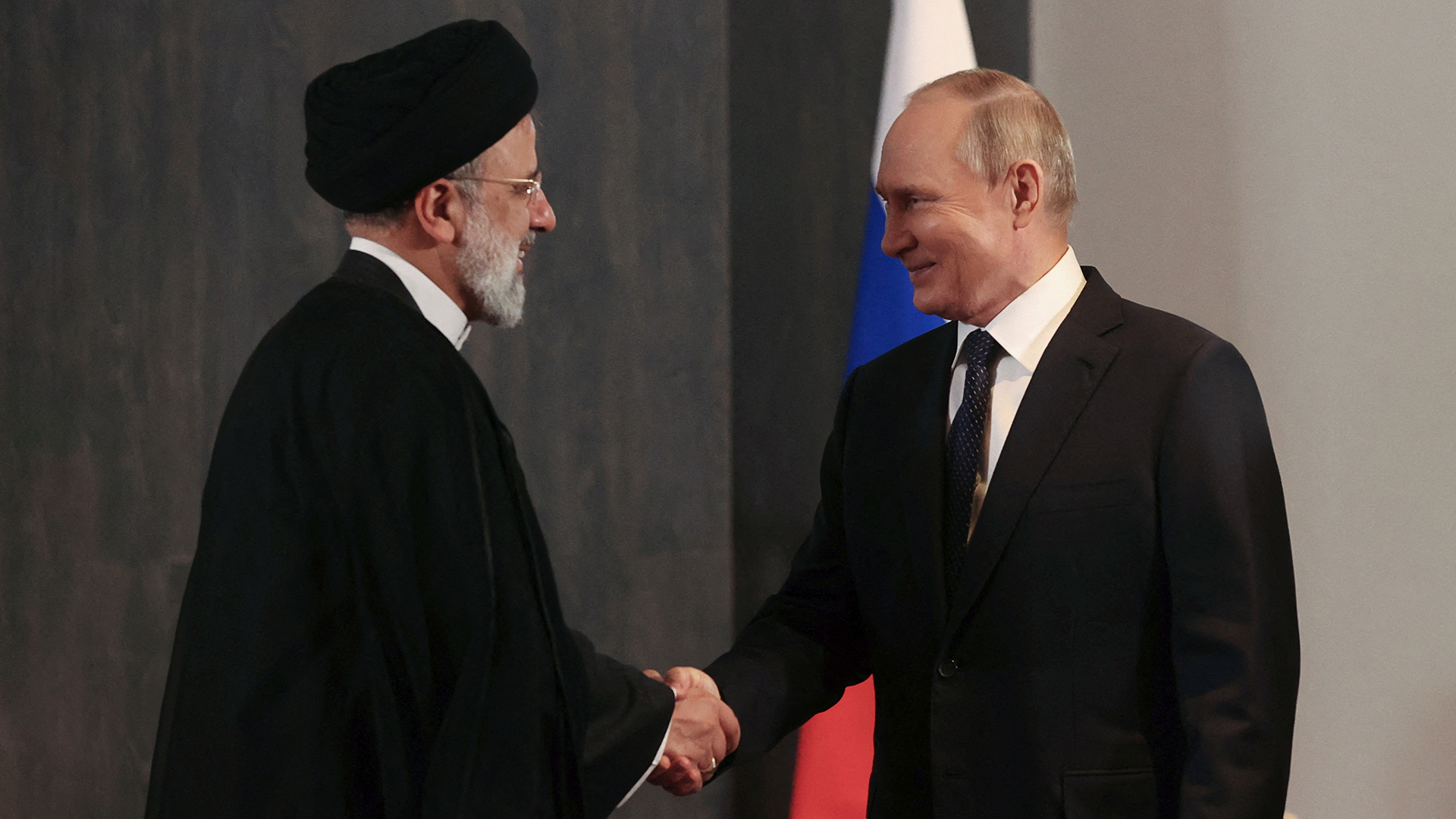Professor of Political Science and International Relations, Dr. Khalil al-Anani, in his interview with the "Beyond the News" program, suggested the possibility of resolving the Iranian nuclear file in order to drive wedges between Moscow and Tehran in light of the rapprochement between them.
The CIA had expressed fears of a full defense partnership between Russia and Iran, and considered it a threat to Iran's neighbors, especially Israel.
The director of the agency, William Burns, said that his country has concerns about the possibility of Moscow providing technical and military support to Tehran, in exchange for Iran providing Russia with drones in its war against Ukraine.
Burns said that the United States bears responsibility for the rapprochement between Iran and Russia, and it must blame itself for having contributed in one way or another to the shift in relations between Tehran and Moscow, for freezing the Iranian nuclear file and for imposing isolation on Russia against the backdrop of the ongoing war in Ukraine.
Burns believed that the relationship between Moscow and Tehran has transformed from a strategic partnership into a strategic alliance dictated by international circumstances, an alliance that raises the fears of the Americans who fear Iran's transformation into an influential regional power thanks to military support, first on their interests and the interests of their allies in the region, especially Israel.
From the point of view of Al-Anani - who is also a researcher at the Arab Center in Washington - the Americans' calculations were wrong when they extended Kyiv with advanced weapons, thinking that Russia would retreat from the Ukrainian arena, but what happened is that the Russians used the Iranian drones that made the difference during the last months in the Ukraine war. .
Israel and trying to distance Russia from Iran
In turn, the senior researcher at the Al-Jazeera Center for Studies and expert on Iranian affairs, Dr. Fatima Al-Samadi, ruled out that the relationship between Moscow and Tehran had reached the level of a "full strategic partnership", and considered it merely a shift in the form and nature of this relationship, and a convergence in political thought between the leaders of the two parties, given that they call for change. way to run the world.
Al-Smadi justified her words with some data, including: Iran's realization that its partnership with Russia is not sufficient to end the Western sanctions imposed on it, and to get it out of its economic crisis, in addition to the strikes that Israel takes from time to time against Syria, which are carried out under the watch of the Russians, and that Moscow will not Balance its relationship with Tehran and its relationship with Israel, and will not sacrifice its interests for the sake of the Iranians.
The guest of the "Behind the News" program expected that Tehran would give up what it called strategic patience in the event that the negotiation process on its nuclear program failed, and this stage would be harsh for the countries of the region, she said.
Regarding Israeli Foreign Minister Eli Cohen's talk about a shift in Tel Aviv's policy towards Moscow, Al-Smadi indicated that the Iranians have a fear of this matter, which aims to draw Russia away from them, and she expected the continuation of what she called the shadow war between Tel Aviv and Tehran.
For his part, the professor of political science and international relations confirmed that Israel seeks to calm Russia's fears because of Tel Aviv's support for Kiev, but the move also aims to try to distance Moscow from Tehran.

